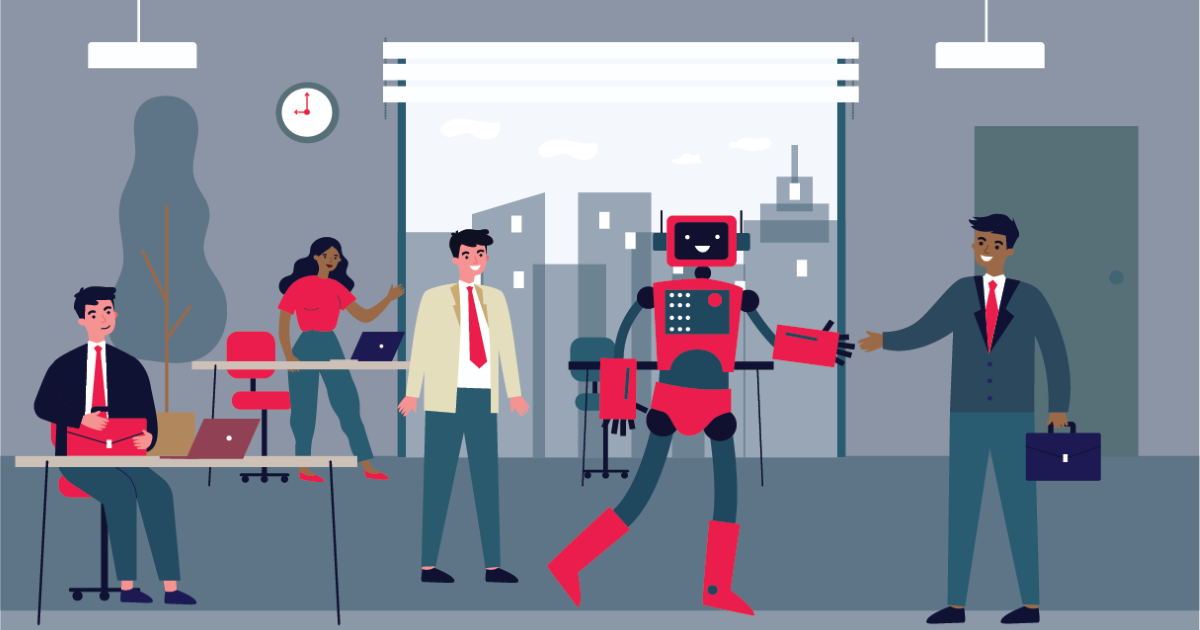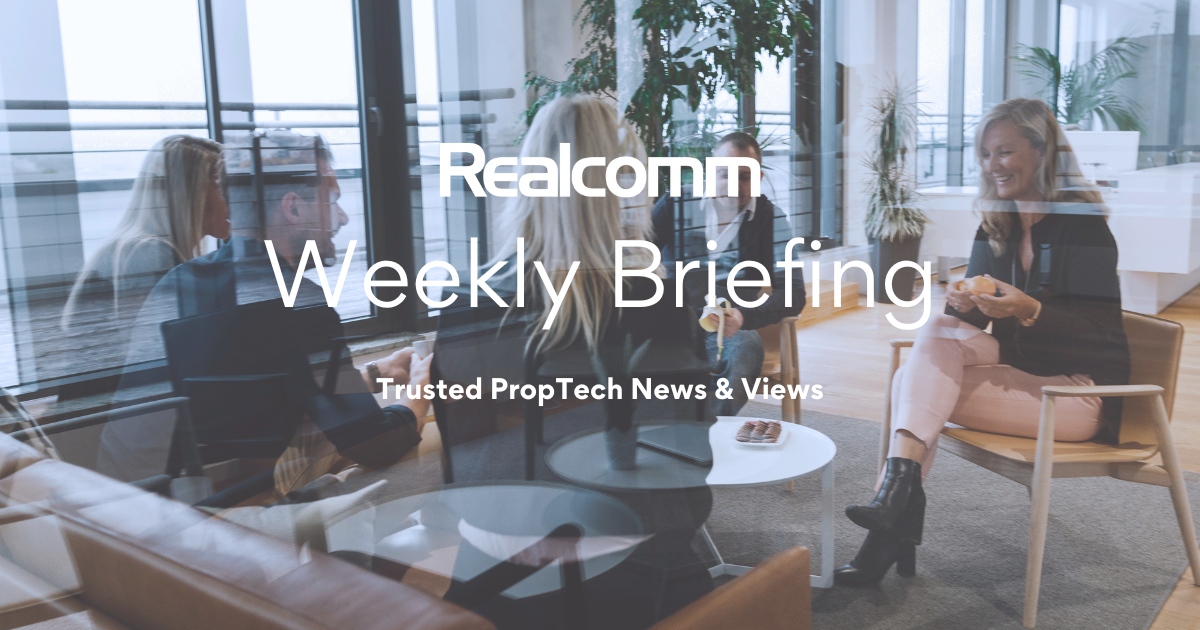3 Reasons to Incorporate AI Into Your Talent Retention Strategy

Introducing new technology into the workplace is often met with suspicion. As AI tools mature and become more readily available, real estate executives are receiving mandates to leverage AI in their organizations. This prospect makes employees at every level nervous about being automated out of their jobs. But that fear is unfounded. In fact, AI can help improve employee experience and can improve retention and engagement for your best employees. More importantly, despite rapid advancements in generative AI capabilities, humans provide necessary safeguards against its shortcomings.
The combination of AI and human intelligence is the optimal solution. Here’s why:
- Your workers fear boredom and burnout more than automation
Worker expectations are changing. In the last five years, we’ve seen remote work reshape employee priorities and expectations of work-life balance. Many were happy to give up commuting and reclaim time for other pursuits.
The makeup of our workforce is also changing. Generation Z is entering the job market, and they’re pushing for flexibility. A 2022 Deloitte survey found 75% of Gen Z employees would prefer more flexibility over a high salary. They’re more individualistic and value-driven employees, and more than half find themselves ambivalent and disengaged at work, according to Gallup. Without the opportunity to develop new skills and advance, or the ability to accommodate personal priorities, they’re more likely to leave. This raises the bar for managers to minimize menial tasks, prevent overwork, and provide paths to learning and growth for junior employees.
- They want business technology to match their consumer experience
Your employees use touch screen phones, get personalized media recommendations via music and movie streaming platforms, install self-adjusting thermostats, and shop with a single tap. For younger workers, stepping into a real estate back office can feel like traveling back in time. They resent having to get work done the hard way.
In a survey from AvidXchange and the Institute of Finance and Management (IOFM), 46% of AP professionals said they would turn down a job with no automation tools, even as many searched for new jobs.
- Generative AI still lacks human judgment
Two lawyers were fined last year after citing a case that did not exist. They used ChatGPT to find a relevant legal case to supplement their work, and ChatGPT came through—by writing something based on a fictional TV plot.
There are no stakes for AI if it tells a lie, but the consequences for your business could be very real. Even with its evolving capabilities, generative AI output should be handled with caution. Think of it as an over eager intern with very bad judgment - it needs oversight. The right objective for implementing AI is to reduce human workload for what’s predictable and obvious, but with human common sense as a guard rail.
How to help your team manage AI anxiety
Progress towards AI-enabled or AI-supported work in non-technical roles is already well under way, and will continue whether the world is ready or not. IT leaders have been shepherds of transformation through many cycles now, and they know that whatever the tech, the hard part of change management is changing human behavior.
When fears of job loss intermingle with a natural resistance to change, the full potential of new solutions can’t be fully realized. AI’s ability to mimic or supplant human output effectively requires more effort to address concerns. The path to AI success involves doing the following for your team:
Highlight what’s in it for them
All employees are stakeholders, even if they’re not decision makers. Whatever the value of AI is for your business, show your employees what benefits they can expect:
- Reduction of boring, manual work
- Increased time for career development
- Improved work-life balance
Decouple being a single point of failure from job security
When employees become knowledge bottlenecks, organizations are exposed to massive risk should they leave. Hoarding information slows progress and impacts your bottom line. Help employees understand their value is about more than manufacturing reliance.
- Make documentation and cross-training a requirement for all roles
- Remove negative incentives for becoming a bottleneck and encourage collaboration
- Reward preparedness and transparency
- Show how offloading low value work opens up space for impact and advancement
Explain their role in guiding AI performance
Improving AI-supported outcomes doesn’t require re-engineering the AI. Your team plays a critical role as the guide steering it in the right direction.
AI can’t distinguish between fact and fiction and will generate misleading output when it doesn’t have enough data. It requires supervision and the ability to interpret new data to steer training.
Here’s how to engage your team around AI:
- Educate them on AI limitations and how humans can close the gap
- Provide them a sense of responsibility for AI success
- Emphasize the value of their past work in building a good AI model, and empower them to keep refining it
Reorient their time and attitudes towards growth
Someday, AI-enabled work will be a part of everyday life. Why not give your team a head start?
- Show your team that AI is meant to augment and support them
- Invest in training and resources to acquaint them with tech adoption
- Reward and encourage automation and inventive problem solving
Like the industrial revolution, AI-enabled and supported work is coming whether we feel ready or not. But while the way we work is going to change, the need for human input isn’t going away.
This Week’s Sponsor
PredictAP automates invoice capture for Yardi Payscan using proprietary AI. It eliminates manual data entry and improves AP outcomes without disrupting existing workflows. PredictAP is a Yardi Standard Interface Partner with US and EU API access, delivering seamless integration, and rapid time to value. Learn more at www.predictap.com.
Read Next
 4/18/2024
4/18/2024
Best Practices for Managing Lease Renewals When your commercial leases come up for renewal, it’s a great opportunity to assess your real estate portfolio, consider the value of current leases and possibly negotiate better terms.
 4/4/2024
4/4/2024
Operational Technology (OT) Data Data has been a cornerstone of business since the early days of computing in the 1960s.
 3/28/2024
3/28/2024
The Tech-Forward Response to Rising CRE Cap Rates is Also People-First Cap rates on commercial real estate have been rising for five consecutive quarters, leading to an estimated 20% drop in value for many property types, according to CBRE’s latest U.S. Real Estate Market Outlook.







.jpg)


